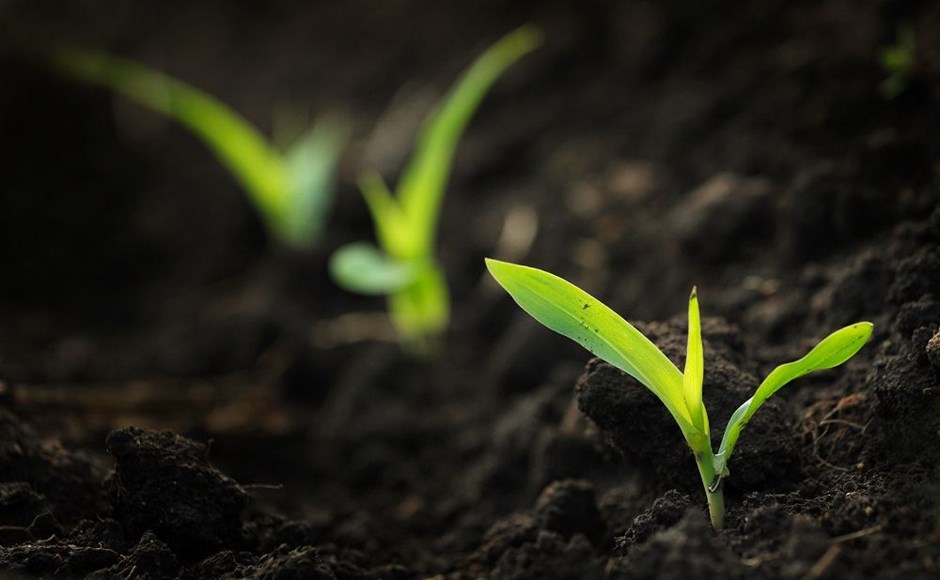Posts
Nature vs German
Shred That Gnar!
Proof I have a brain…
In case anyone should question it, here is my proof that I do in fact have a brain. I decided to have a little fun with my MRI results from a study I participated in. It makes no sense, but it was a little weird seeing your own brain.
Gliding
Flurries
UTC Visit
Major’s 17th Bday
2019 – A Year and Decade in Review
Snickel’s Marcos
Dickens of a Christmas
Caroling Major
German Rocket Launcher
Thanksgiving 2019
Rocket War Interviews
Thanksgiving Raw Footage
Christmas Decorating
Speed Racer
Limbs
Parents’ Weekend USAFA 2019
Stillman’s Field
Dorm
Acceptance Day
USAFA
There are two ways to become wealthy…

If someone told you they could grant you instant wealth would you be interested?
Someone can.
That someone stared back at you in the mirror this morning.
There are two ways to become wealthy.
One way is to make more money, the other is to want less.
It is up to you… you can decide to be wealthy right this instant… just decide to want less.
You might suggest that “The heart wants what the heart wants” and that it is not within our control to want something other. Whether that is true or not, I would suggest that the more important point is “You can not want what you do not know.” Bare with me, and I’ll try to show the relevance.
Consider for just a moment that there may be things you would want more than anything else if only you knew about them. Could it be that with deeper contemplation you might discover something you did not initially know, and once this thing is known you come to realize your previous “wants” fade from your desires?
I would suggest this new thing, this new piece of information might be the knowledge of the true “Carrying Costs” of your “want.”
In the financial world, the term “Carrying Costs” refers to the costs of holding inventory and includes maintenance, specifically in regard to perishable items, storage costs, or other ancillary costs incurred as a result of owning or holding something.
Let’s take a silly example… Getting a pony sounds wonderful at first, but with a little thought you quickly realizes you don’t just need the money for the purchase of the pony, you also need money to buy and maintain a barn, pay for a veterinarian, pay to have shoes put on the pony, buy food, and invest your time grooming and training the pony. Once you think through the “Carrying Costs” of owning a pony you may find this thing you thought you wanted starts to fade from your desires.
If you are lucky enough to want something with very low Carrying Costs you should still appreciate that even then, you will still be faced with the Carrying Costs of fear.
Once you have this thing you have desired, you then run the risk of becoming obsessed or worried that you will lose it or damage it. Now instead of fully enjoying what you thought you wanted, your joy and peace of mind is stolen by worry of losing it, and your time (and other non-renewable resources) begins to be consumed trying to create a circumstance where you are guaranteed to have this prized possession forever.
Considering the true and FULL Carrying Costs of what we think we want is rarely done. If we considered such realities we might want far fewer things than we currently do.
It might also be argued that “wanting” is a good thing… that “wanting” motivates people to greatness. Fair enough, but in fairness no one is suggesting the path forward is a lobotomy or giving away all you own and eating grass on a small mountain somewhere. The suggestion is simply that we be more thoughtful about what it is we really, truly want. Be more thoughtful about the full carrying costs of what we allow ourselves to acquire.
Fancy things and expensive vacations are wonderful but such things might best be left as “happy ancillaries” to our real WANTS, rather than ends unto themselves. If these “things” come to us great, if they leave us great, if they never arrive great.
The point is NOT to be without things. The suggestion is NOT to be mindless and wantless.
The suggestion is rather to become more mind-FULL and Want LESS.
The Pessimist’s Reward…

Could it be that I have missed one of life’s main goals?
Based on casual observation, I am beginning to suspect that one of the ultimate goals of this life or maybe even a secret reward has been promised to any among us who can imagine and proclaim the worst possible outcome of events. Why else would so many choose to take the darker side of “what will happen” so regularly? I can only assume that they must be strategically choosing the negative position in order to play the odds, ensuring that one of these days they will be right, the worst will happen, and they will win some secret jackpot and be praised as “omniscient pessimists” by the rest of humanity.
Why else would thinking people intentionally choose a negative default perspective unless they expected some reward for their troubles?
I suppose there is a certain perverse euphoria in proclaiming “I told you so” but it is hard to imagine that this fleeting moment of gloating is worth a lifetime of negativity or the countless times they are wrong.
Often the excuse for taking the negative is basically… “Look, I’m just being real here.”
Owning reality and not living in some fantasy world is certainly a virtue but how “Real” is taking the negative all the time? Consider how often a negative prediction is wrong! Yes, bad things happen but so do good things and that doesn’t even consider the third outcome… indifferent results, neither good or bad. If each category of results had an equal chance of happening (and they do) then the category of “Bad” results would have only a one in three chance of happening, and yet many seem to pretend it is a foregone conclusion, and then take some unknown pleasure in proclaiming their omniscient negativity to anyone who will listen… “I can tell you right now how it is all going to turn out.”
Some pessimists might concede that they are often wrong but will argue that there is a certain catharsis in having the negative approach, that expecting the worst case scenario somehow purges or blunts the negative emotions that accompany the worst outcomes and makes them happier when things turn out better than they expected. This may be the best argument one could make for a negative view but I still find it weak. I would agree that it is important to consider and accept both the best and worst case scenarios, but would it not be better to simply accept the reality that either is possible and then proceed without committing your opinion to an outcome you do not REALLY know will happen and most likely do not control.
Catharsis is he process of releasing, and thereby providing relief from, strong or repressed emotions. Don’t repress them, accept them. Accepting both the good and bad offers catharsis, without the messy drama of committing yourself to an outcome that may not happen. If it is pleasant surprise you are after than expect nothing, good or bad, and then you will be surprised by whatever happens.
How many mental cycles, hours, days, and weeks of the pessimist’s life is lost to worry, ill will, and negativity… and for what?
If the odds are not in the pessimists dark favor, if catharsis and surprise can be found in simply accepting both good bad potential outcomes, then it must be that the pessimist does indeed choose negativity out of their desire to stand victorious above a swamp of negativity and proudly proclaim they “told you so”. How sweet and fulfilling this hollow, self interested victory must be if it is to fill the hole created by countless other failed predictions of pending doom and the joy of living lost in the process.
I choose to assume neither the best or worst but rather wait and accept what ACTUALLY happens. I find it most prudent to consider the possibility of both good, bad, and indifferent outcomes and to further appreciate the fact that my perspective about the outcome will be more important to me than the event itself.
On the balance, the pessimist has no reward, but must be content with the fleeting thrill they feel when the worst that could happen, does, and proves their pessimism correct every now and then. A fleeting reward at the cost of all else is no reward at all.
Packing & Departure
Mini Road Trip
Lake Time
Wild Cards 4
Rain in the Valley
Dog Bark Symphony
Roman Candles
German – Life In Random Order
Memorial Day Tribute
Memorial Day Grad Party
German’s Graduation Remarks
Boy’s Last High School Shared Commute
Enjoy the Dance

Our species is unique in its obsession with the future (worry) and too often enslaved to the past (regret).
For better or worse these obsessions likely proved to be highly influential selection factors. Those who were obsessed with tomorrow were more likely to be prepared for it and more likely to have existed long enough to have offspring wired and brought up to have this same obsession. Those who ruminated on the past were less likely to repeat failures and more likely to learn from them.
But at what cost?
I would suggest the price has been our inability to live in the present, to experience our NOW without labeling, comparing, and planning.
This is a tricky point to make because I do not want to be misunderstood to suggest that either of these traits are innately evil. After all, studying the past and thinking forward into the future has resulted in the advancement of our civilization and quality of life.
As with most things, what is the question is degree, and thus the question of obsession. Obsession is often defined as “an idea or thought that continually preoccupies or intrudes on a person’s mind.” It is the “preoccupying” and the “intruding” that we must guard against.
We must own the reality that our ability to think on the past and the future are tools that nature selected for us. These are wonderful, powerful tools, just as a hammer is a wonderful, powerful tool, and yet not everything in life is a nail.
Knowing our proclivity to obsess and overindulge in the use of our natural talents, we must learn to teach ourselves anew how to balance learning and planning with living in the NOW. It is here that meditation becomes an invaluable tool.
YESTERDAY has ceased to exist. Learn from it but live beyond it.
TOMORROW is a hope. Prepare for it but do not count on it.
NOW is all you have. Never let it be a slave to what WAS, but IS not, or what may BE, but is not YET.
Balancing hindsight with foresight while still leaving ample mental space to simply observe the NOW is not easy, but it is worthy. It may help to remember that all of life is not a rush to a destination.
Arriving at a destination on the floor is no more the point dancing than getting to the end of a song is the point of music. Enjoy the dance.
Rap & Sabers
2019 Easter
Coloring Eggs
Page Rocket Launch
Sam’s 60th
Beware of ANTS

You are the maker and destroyer of your world.
Every minute, every hour, every day, we must protect our world from ANTS. Automatic Negative Thoughts are a poison of habit. A habit that hobbles.
To speak a thought is to give it strength, to make it more real than it was before, even if it was never true. Be careful what thoughts you cultivate, they will become your truth, they will become you.
Be careful of your self talk, you are listening.
Tea With Grizzlies

It is one thing to learn from failures, it is another thing to pass permanent judgement on ourselves.
Too quickly, we often look backwards to a failure and say “that is me.” In such cases, isn’t our retrospection short sighted? Why look back only as far as our last failure? Why not look back beyond that failure to a time when we were supposedly “pure” and “praise worthy” and in doing so, judge ourselves approvingly?
“But there were failures before that,” you reply.
Well then, why stop there? Keep going. The problem is, before long we find ourselves traveling all the way back to the womb and for what? Our past actions (or inactions) say more about our PAST inability to be fully AWARE and in THAT MOMENT from the past, than they will ever say about who we are NOW in THIS MOMENT.
One might next respond, “But I don’t want to forget these failures, lest I repeat them.”
I am not suggesting we forget or ignore failures, rather I am suggesting we acknowledge them, learn from them, and move on. It is possible (and preferable) to acknowledge a reality without LIVING WITH IT DAILY.
For example, I can acknowledge the reality that a bear has crept out of the woods and into my front yard, and respond appropriately; however, acknowledging the bear is NOT the same thing as inviting it in to live with me inside my cabin. I have options…
It would be foolish to pretend the bear was not there, doing so could cost me my life.
It would be foolish to invite the bear in to live with me, doing so could cost me my life.
I could panic, and lose control of myself at the very thought of this bear in my yard, freezing up as I imagine thousands of scenarios in which this visit ends terribly. Doing so, I might likely live my last few moments in frozen panic, as the bear slowly makes its way into my home to say “hello” with its incisors.
Alternatively, I could acknowledge, that like me, it is part of the natural world, and as such, circumstances have brought it into my front yard. It might be prudent for me to consider whether I have done something to encourage this unwanted visit. Maybe I unintentionally “baited” or encouraged this bear to come calling. If so then I should note the behaviors that beckoned the bear and not do them in the future, unless I want to have tea with a grizzly.
I would suggest, the best course of action is simply to acknowledge the bear, appreciate the place and purpose it has in the world, my world. Consider what has brought it into my yard (circumstance or personal actions, intentional or not) and then take precautions to not let it inside my home.
Rather than responding to my bear with paralyzing fear or crushing guilt and dismay, it might be more prudent to simply observe the bear for a moment, note it’s presence, resolve to not invite such a visit again, while also appreciating, that in spite of my best efforts, circumstances may still bring such a visit in the future.
Having given the bear a moment of my mental space, having taken appropriate precautions, I should then focus on something else and move on. The bear’s home is not my yard, it too will move on unless I act foolishly and invite it in, or fail to acknowledge its presence at all, and walk out to become its dinner instead.
Those things that are the “bears” in our lives need not cause us panic or guilt, and they certainly should not be invited in to live with us daily. Acknowledge your “bears” and note what (if anything) encouraged their visit. Once we have observed and faced our “bears”, taken prudent precautions, and come to peace that bears are just part of living… then we should GET ON WITH LIVING.
Imperfect visitors, such as bears, need not live with us daily and “imperfection” as a category need not be viewed as wholly negative.
To me, some of the most beautiful things in the world are beautiful because of their imperfection. Often the imperfections in wood bring a natural character and beauty all its own. The flaws in the woodgrain often have the effect of bringing focus to the beautiful grain that is strong and perfect around such flaws. This does not suggest one should seek out flaws in order to improve their “beauty” as a person, anymore than a great oak seeks out insects, weather, or genetic flaws in order to make its finished wood more beautiful. A piece of wood, artificially and intentionally made imperfect through scarring or distressed is often seen for what it is… a fake.
In the end, in may ways, we are all great oaks. Flaws will often appear naturally without any inducement by ourselves, and it may also be that our choice of where and how to grow might intentionally or unintentionally invite flaws. Grow wisely. Acknowledge that bears walk in the woods. But most importantly, GROW!
The growth through, and around, our imperfections is what brings beauty and strength to our grain and it will provide a stunning view, high above the bears, and the forrest floor.
Staining Dance Floor 2019-03-22
What’s in your row?

It has been said…
“The patterns in our lives reveal us. Our habits measure us.”
We are “strange loops” cycling back around, pattern after pattern. When I look back on my life thus far, I see a myriad of patterns… some I am proud of and others I am not.
It is curious (and too often disheartening) how automatic our responses are to various stimuli. Those who know us best can with unnerving accuracy “play our part” and predict how we will react to this event or that circumstance. We never have to worry too much about showing those around us who we are… we do it every day through our patterns and our reactions. Our interests (or lack of interest) is shown in what we make time for, what we do, day-after-day, we weave a pattern, a self-portrait, and then we are surprised when someone reads it so well and holds a mirror to the patterns we have drawn for ourselves, of ourselves.
Fortunately, our past does not have to define us. We can change that which needs changing and reinforce that which will make us a port of calm and refuge for ourselves and those we love. This will be the most difficult thing we will ever do. Change is always hard, but change-of-self, breaking a pattern and creating another, is EXTREMELY difficult.
I might argue that the patterns we weave, started long before we were mature or self-introspective enough to make well thought out decisions about those actions. The family we were born in to, whether you were the oldest, middle, or youngest child, whether you won the lottery and were born into a zip code that provided opportunity and wealth, or scarcity and poverty… all of these things influence our early pattern making. It is here that the last part of the quote above becomes so important. The patterns in our life reveal who we are but it is our habits that measure us.
As is often the case with a good quote, there is a bit of word-play, going on here… our patterns are our habits, so why the distinction?
The word “patterns” seem to denote that which is automatic, unplanned, a natural state, however; the word “habit” seems to be colored with a sense of choice. We choose our habits. This is why I love this quote… it speaks with truth to the past (all of which we can not now change and some of it things we never had any control over to begin with) and it speaks with truth to the NOW and the future, which we make with the habits we choose.
We our not measured by what we are given, we are measured by what we make of what we are given, the habits we grow and the habits we kill.
Our life is a garden for which we had no “say” in its placement or its early plantings. In time though, this garden becomes ours to weed, ours to plant. The rows of our garden may reveal our early self but the habits we plant to fill those rows will measure us. Let us plant wisely.
Dreams are for sleeping…

I have heard it said…
“If you want to make your dreams come true, the first thing you must do is wake up.”
We often use the words “dreams” and “goals” interchangeably. This practice probably causes no intrinsic harm but this quote made me wonder. Could it be that deep down we understand the nuanced difference between these words, and then by allowing ourselves to use these words interchangeably, we allow ourselves to be lazy and fumble the ball short of the goal line?
A dream is an idea, often a bit abstract, often hazy, and all too often rather general. Dreams figuratively and sometimes literally float in our mind as something we would love to do, love to be… and like a cloud they are beautiful, they can morph from one object into another in our “minds-sky”, and they are tied to nothing but the breeze of our imagination.
That is not to say that we do not from time-to-time have very specific detailed dreams for our life. We do… but in my personal experience, something I refer to as a “dream” is usually something focused on a “destination,” something I see as my “moment of arriving.” It is very rare that I characterize the step-by-step (often mundane) process of getting there as “my dream.”
A goal, on the other hand, seems to come with a slightly different but vitally nuanced color to it. When I call something a goal, this goal is rarely contemplated without also contemplating the plan directly associated with that goal. A goal requires a plan. The basic definition of a goal is something that results from the execution of a plan.
We casually use the words “dream” and “goal” interchangeably, but I now wonder whether doing so degrades one and gives an undeserved sense of accomplishment to the other. Having a dream is easy… just fall asleep or daydream about something you love, would love to do, or would love to be. Having a goal is hard. To have a goal (a real goal) requires a plan to get you there, and making plans, much less seeing them through, is VERY difficult.
I can hear you now… “You are just playing semantics!”
You would be correct.
I am.
But that’s my point.
Words matter. The ones we use to describe our world, ourselves, our actions, all come with underlying ideas and meanings. If we refer to something as a “goal” but have NOT done the hard work of putting a plan together to get there, then we are essentially “building a roof, without first building a foundation”… and somewhere deep inside of us, that lazy part of our brain throws a party and says… “See there, progress, we are getting things done, we have a goal, which means we have a plan, which means we did some real work here people, and one day soon this dream will be a reality.” Nope. More times than not, what we have is a DREAM, not a GOAL. No work is required for a dream. It is something we fantasize about, something we would like to be a reality, but because we have no plan, because we prematurely call it a “goal,” we never “wake up.”
A dream will never come true unless you wake up and live it. Ideas without plans are just dreams, they are pretty clouds, but good luck ever grabbing one. A cloud looks like a real, very defined object from the ground, but if you have ever flown into a cloud you have experienced the reality that it is often VERY difficult, if not impossible, to tell where a cloud begins and ends. Dreams are like that… they are pretty clouds. They float n our minds-sky without any real definition or a plan to get there… and even if we did arrive at the cloud, the cloud is so ill-defined that we wouldn’t really be sure whether we had arrived or not. Dreams, like clouds, condense out of the heating and cooling of our emotional passions. They can be beautiful, but they can never be a destination. You can’t truely live in the clouds.
Dreams that you wake up from, and then formalize into a plan, become GOALS, and the journey to that goal, that one step at a time process, is what brings reality to our desires. Dreams are made real by waking and working. Dreams are made real by persistent, unrelenting action that follows a plan, that leads to well-defined places in the real world. The sooner we wake to the realities of the world and realize that there are no benign fairies that will make magic happen, no genies granting wishes, and no living in the clouds, the sooner we will wake to a reality (that with with work and planning) CAN BE .
Now wake up… dreams are for sleeping 🙂